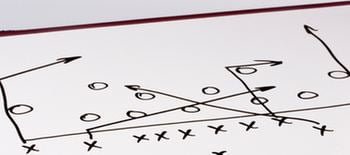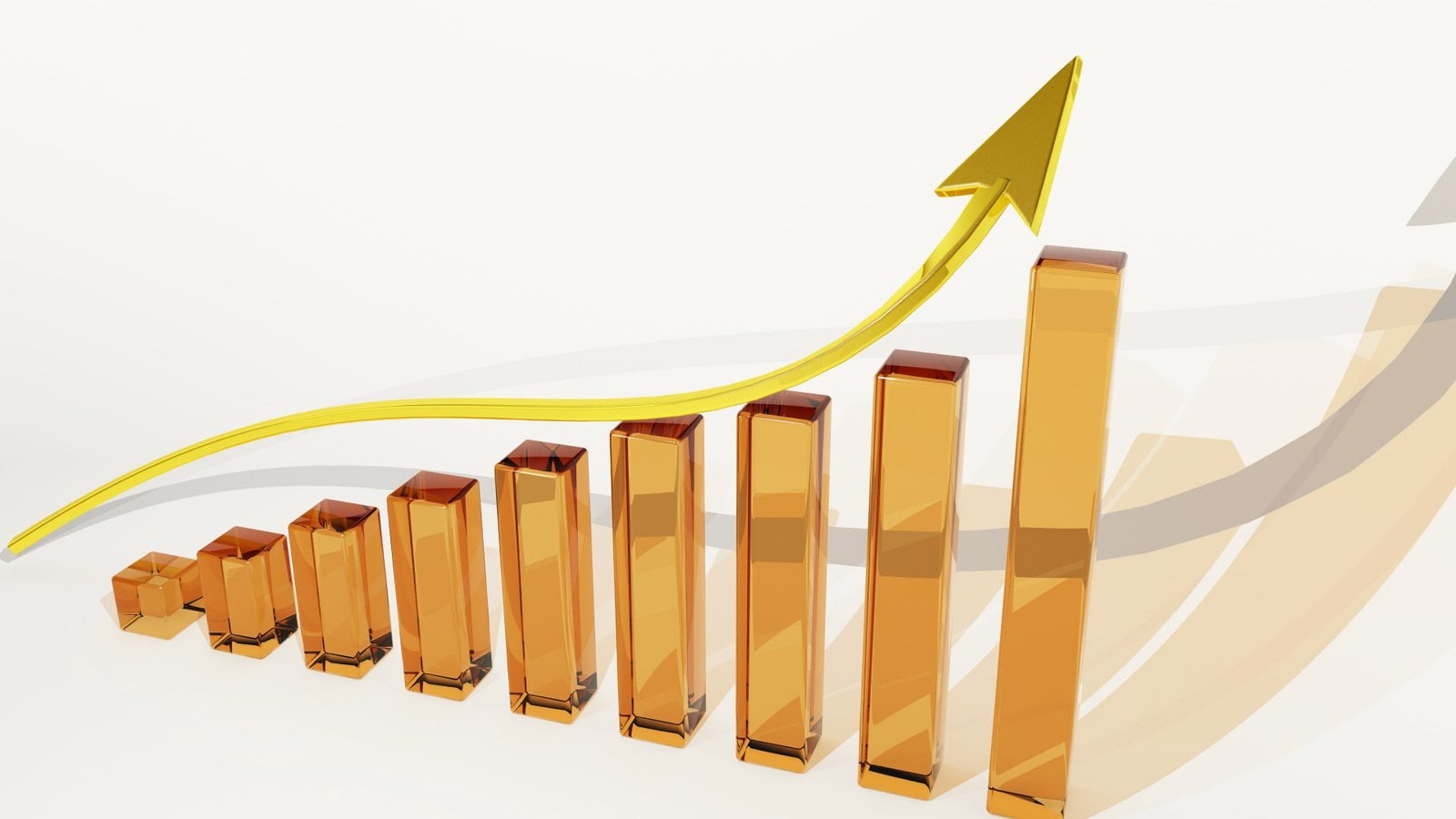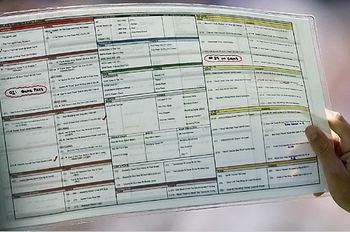Someone believes they will win the lottery and they feel great about it.

That’s a self fulfilling prophecy AND optimism? True?
No, it’s insane. That’s what humans want to believe. What matters to you is the person with those two biases/beliefs will tend to BEHAVE consistently with their biases. But that doesn’t mean they get results. One can believe that walking into traffic is wise and then proceed to walk into traffic and then land leveled on the pavement.
Let’s answer what needs to be forecast, how to deal with optimism and what to do with your belief that you are capable of getting what you want.
The Self Fulfilling Prophecy is simple. It’s where the human is certain that you will perform a task and end up with a result. It also refers to the notion of labeling people. A therapist labels his client as psychotic and many psychologists believe the label will “stick” whether the diagnosis is correct or not. (What has been shown to “stick” and not stick is the subject of a different article.)
Optimism Bias simply means that someone believes that something good is more likely to happen or be true of themselves than others. For example. They believe they are a little smarter, are better looking, drive better, are more likely to have a good job, live longer, are more likely to have a good life. The bias is similar to other biases. It means that one tends to be certain that their future is brighter than the rest of the world. Humans overestimate the likelihood of good events happening and then underestimate the likelihood of negative events. What’s important for you to know is that most people have an optimism bias. It’s likely that humans have adapted over the last couple of million years to believe things will be better than they are and that they are more capable than others.
Meanwhile, Self Efficacy is the belief in the self to handle some situation when it arises. It reflects certainty of someone being able to execute certain behaviors to get what they want. The reason you have to know about this is that an individuals belief in their ability to acquire goals…is often correlated with the opposite happening. Some research shows that people tend to overestimate their efficacy to deal with the big picture problem while underestimating their efficacy to deal with the details of that problem. In fact, people who underestimate their self efficacy tended to out perform those with higher self efficacy. (This is a BIG WRENCH.)
The answer to this challenging situation is WISELY SEQUENCED DOUBT.

You don’t doubt you can get a base hit when you are at the plate batting. Doubt comes in the analysis of your game play AFTER the game and then finding your weaknesses and working on them.
Begin with the Self Fulfilling Prophecy.
The idea that you can tell someone else that magic will happen in their life doesn’t mean that their hearing or even acting on it, will make magic happen. There are SOME people who can send a message (subject of another article) and change the outcomes of other people. It’s not instantly easy however and your “positive prophecy” for someone else can and OFTEN DOES literally cause them to fail.
A self fulfilling prophecy is closely tied to the Pygmalion Effect. The key difference is that the certainty level in the individual with the self fulfilling prophecy must be absolutely certain that they will be able to achieve some result. It’s not about a belief, but rather a certainty, like knowing the sun will rise in the morning and set again at night.
Some self fulfilling prophecies are very likely to come to pass. Others never will.
Today, you find out what kind of prophecies will be fulfilled and what kind rarely are.
To understand all of this, we have to first look at The Optimism Bias. This week you look at the up and down side of Optimism Bias.
This is a simple skewed perception we all have that helps in part determine whether or not prophecies will fulfill.
You and I have an Optimism Bias.
- You and I believe that we are better looking than average.
- We believe that we are more intelligent than average.
- You and I believe that we are better automobile drivers than average.
- We believe we are better at pretty much everything…than average.
 These are beliefs that we have and they are undeniable because we have “proof by comparison.”
These are beliefs that we have and they are undeniable because we have “proof by comparison.”
Every single day, you look out THERE and you see people who make the most ridiculous decisions all based upon faulty premises. You and I see that they believe they possess some amazing ability… that they don’t have.
You see parents do this with their kids.
Their kids are having fun in gymnastics, perhaps even practicing an hour each day. The parent begins to hallucinate their child is a future Olympian. You and I know that Olympians are essentially in training almost 24/7 all day every day. Your friend’s child is a sharp kid, does some cool tumbling and has some neat tricks on the uneven parallel bars, but the fact is, she has zero chance at Olympian fame.
But if it was OUR kid, our vision could be just a little skewed.
You and I shake our head as the overweight guy pounds down another 1,500 calories at a meal. Will his diabetes kill him before his heart gives out?
Why does he not see it? Doesn’t he care about himself?
Fact is…you tend to be pretty effective at judging people briefly after you meet them.
Why? How?
Your Clear Lens
You’ve developed instincts (Nonconscious Learnings) through thousands of similar experiences.
In fact, you and I tend to have a pretty good handle on what other people should do in a lot of areas of their life.
But, the reality is that humans aren’t as great at Self Analysis as we are Other Analysis.
You really want to know why your “Positive Self Expectancy” doesn’t come to fruition when compared with the frequency that Negative Expectancy in yourself and others does. It’s true negative expectations are much more likely to come to fruition.
But these negative expectations you’re reading about right now aren’t simple sentences spoken like, “I’ll never pass this test.” THAT is actually correlated to better performance.
The negative expectation that holds the power to trigger negative results is when the expectation is absolutely certain in the individual. They know (certainty) they can’t pass the test, they don’t even bother attempting it.
Where does “Hope” Come From?
- You already believe you will have more money in 2021 than you do in 2020.
- You already believe you will have more time for “things” in 2021 than you do in 2020.
Piles of research show otherwise. The vast majority of people will not be better off, financially for example, next year than they are this year.
Your current Optimism Bias is already giving you a certain boost in life. If you didn’t experience that, then life would be less hopeful.
Now here is the reality and what you can do about it.
An Autopilot World
 Most people, for all their “thinking,” are relatively inadvertent. The vast majority of people are on autopilot. Humans almost entirely operate from their nonconscious brain functions.
Most people, for all their “thinking,” are relatively inadvertent. The vast majority of people are on autopilot. Humans almost entirely operate from their nonconscious brain functions.
They do the exact same things every day. They respond to stimuli and engage surprisingly little in proactive behavior.
Most people are quite good at their daily routine. They wake up, shower, shave, get the kids to school, cook, get to the office, answer the email, do their work, punch out, return home, cook, get the kids to bed and while tired, even burned out, they are remarkably competent at these experiences.
In other words, every single day people experience positive affect about what they do. They feel GOOD and COMPETENT about their ability to handle their immediate world. And the fact is, so long as nothing goes wrong, they do a great job.
That helps create the bias that they can do well at most things. And then they try the new thing and fail and realize that they will go back to what they felt optimistic about.
Predictability = Autopilot
Why did they fail and return to their original place?
Because their world is highly predictable.
The toilet always flushes when you flush it. They are good at flushing the toilet. They feel competent.
Now, if you were to place something DIFFERENT in front of someone, you’d see a different result.
This “something” can be anything that is not part of their daily life, something that is NOT taken care of by the nonconscious brain… in fact, anything that is NOT instinctive…and they “freak out.”
For this experience, they tire faster.
They have no energy because they have built up no tolerance for new activity mental or physical, that burns mental energy which chews up a lot more calories than jogging ever will.
Something NEW happens and most people fall into a state of stress.
When life is NOT predictable most people…do indeed freak out.
The person who talks about “control freaks,” that drive them crazy, is in general, really is telling you that they themselves do the same exact thing every single day and they have almost no deviation where they are consciously required to “wake up” and consider facts about a decision.
Meanwhile the control freak is constantly navigating new waters, coming upon obstacles and directing traffic to CONTROL and overcome them.
Let’s be clear and honest. Some control freaks are darned difficult to be around. They can take TOO MUCH control and make life maddening for those around them.
But most control freaks aren’t crazy at all. In fact, they are the people who make the world go ’round.
Meanwhile, almost all of normal people’s behavioral CHOICES come from “intuition” or “instinct.”
They don’t need to evaluate flushing the toilet. It’s intuitive.
They flush.
It flushes.
They know they are competent.
They are certain their instincts/intuition are better than other people’s. (In all areas of life.)
How do they know?
They observe people under stress and see them struggle.
Why?
Because they don’t notice people when others are NOT under stress.
Why are people who make a lot of mistakes ideal to hire or marry? …Begin to Notice
There is no device in the brain to trigger an alert for “WATCH OUT FOR THE KID SLEEPING ON THE BED.”
Most people’s brains are only trigger consciousness when there is a deviation from the norm.
Less deviation = Less stress.
Less deviation = more observations that are predictable.
Less deviation in life = more certainty about the environment.
Less deviation in life = more familiarity and comfort.
Ask someone if they are intelligent:
They will tell you that they are indeed quite sharp and they have evidence because they make almost NO mistakes in the course of a day.
Mistakes = Waking Up
 People who make few mistakes are the WRONG people to hire.
People who make few mistakes are the WRONG people to hire.
People who make few mistakes are not used to thinking.
They are reactive by nature and thus they live with a fear of failure.
If you are a manager and you have the opportunity to hire someone who tells you they make a lot of mistakes vs. someone who tells you they don’t, you pretty much always want to hire the guy who says he makes plenty of mistakes because he is really telling you his brain is not on autopilot. He is comfortable or at least familiar with new experiences. THAT is the leading indicator of greatness.
Remember the person who doesn’t make a lot of mistakes is the person who doesn’t experience failure very often. They don’t fail because they don’t do anything they can fail at.
This person is living with their eyes shut. They are walking in their sleep.
There’s not anything wrong with that, of course.
They never are required to wake up because they flush and it always flushes.
Deviation means something DIFFERENT happens.
Deviation means UNEXPECTED.
It means UNFAMILIAR.
It means UNCOMFORTABLE.
UNEXPECTED, UNFAMILIAR and UNCERTAINTY kick in the most powerful of all human drives after reproduction.
You call it the flight/fight response.
And you don’t like it.
The Status Quo Life
Most people live their lives avoiding ANY DEVIATION.
Think about it.
There are millions of people who work at jobs that require no deviation from the norm on a day to day basis.
Here’s a real life cultural experience that exemplifies walking in one’s sleep.
The 35 year old at the county office, believes they “have a pension.” There’s a decent chance they’ll actually get that pension. But they should probably have a plan B.
They’ve heard this 100 times but instead of doing something different, they AVOID the uncomfortable and continue to do what they are “competent” at. They won’t deviate. They fully believe someone else will deviate so they never have to.
These workers aren’t alone in blind adherence to the Status Quo…to an Optimism Bias.
Believing “things will be fine” makes people FEEL better and it’s only reasonable that people feel better most of the time.
They tend to have a “positive outlook on life.”
That “positive outlook,” is one way they determine quality and satisfaction in life.
Is that “positive outlook” a trap? …
Does “Happiness” Exist?
Perhaps they ask you, “are you happy?”

Happy is one of those fascinating definition-less words that ultimately means “have you experienced very few failures lately?”
You and I want to “feel happy”, too. Everyone does.
However, people want to feel happy and at the same time deny the starving children in Ethiopia and Somalia. And the starving Mom’s. The dead Fathers.
Why?
They have an Optimism Bias.
Reading my Facebook today I read many such mentions of, “Your life today is a gift from God.”
Who knows? I certainly I have no idea if that is true or not. But my thoughts go to the child who just starved to death in Ethiopia or Ogaden or India.
The denial of reality causes people to not see pain, suffering.
Another Facebook friend posts, “Health care is a Human Right.”
That should make anyone laugh.
First thing you wonder is why they aren’t at least feeding one family in Africa if they truly believe that.
Or perhaps only in some places is “Health care a Human Right.”
They want to feel good and they DO feel good about themselves.
They run their life in such a way that if they feel comfortable and things are familiar, they are in their zone.
Think about it.
Belief of Entitlement
As long as THEY get their pension, it really doesn’t matter if someone “after them” doesn’t. As long as they get “theirs.”
And why is this yet-to-be-collected money from someone else who might be equally as deserving, “theirs?”
It’s a belief. And it’s got to be a very strong belief. Like a belief in God. Believing someone has a right to a pension or health care is quite another thing.
They believe they “have a pension” and they believe they “will get it.”
They believe they are entitled because they were “promised it.”
Because of this, our 35 year old friend has no need to live in any frame of mind other than Status Quo. Everything will be taken care for them like a child in diapers. They will get changed.
They truly believe that because the government or the company promised it, that they deserve it, are entitled to it.
But you and I see the obvious. There is no “it.”
Big mega-companies and of course governments of all types and sizes are constantly going bankrupt.

They have billions of dollars that will be due to hundreds of thousands of 35 year olds, most of whom will never see that money. It’s just the way business goes. For people who are used to deviation, difference, unfamiliarity, and discomfort, this is all simply part of life.
For people who are not used to deviation, not used to difference, are not familiar with embracing change, the unfamiliar, the uncomfortable…they have a strong bias to “believe” something which is not ultimately possible…
They anticipate getting paid to not work. (Pension) This notion of being paid not to work has been in existence in the United States for about 70 years. Prior to that, in all of human history…no one was ever paid to not work. Why?
It’s not possible to sustain. It can’t work mathematically.
And the math is remarkably simple, but most people can’t ever even compute that problem.
That’s unfamiliar.
It’s different.
It’s deviation.
And then that Reaction-Only Individual would be entitled/deserved to be entitled to SOME KIND of compensation that doesn’t require them to do something uncomfortable or unfamiliar.
Ever hear the phrase, “another job in your field?”
Have you ever heard something more ridiculous?
Only in the last 50 years has that concept been a consideration.
It’s not in the Bible.
It’s not in evolution.
It’s largely only in the United States.
It is so strange and foreign to human thinking that it requires a very specific cultural weakness to even utter the words.
If you and I were to ask the woman in Ethiopia….the woman in rural China who earns $2 or $3 per day…they will tell you that they have never heard of such a notion because pretty much only in the United States does it exist.
This bias toward Self Protection is completely understandable.
The Optimism Bias causes people to believe _______________…
Most, but not all humans, believe they are insulated from negative events and people by being part of the hive, the collective.
The Optimism Bias causes people to believe that everything will be OK and those who try and tell them otherwise have a “negative attitude.”

To do the math requires deviation from non-conscious control of the motivations of human behavior.
In other words, it’s not that they couldn’t figure out they won’t get their pension, it’s that when they do the math they will realize that they are about to do something dishonest. They are going to take someone else’s hard earned money so they have it and the person they steal it from doesn’t.
The math is ignored.
After all, they might think, the Pension Fund of America will kick in if the company or government doesn’t have the money, right?
That could be true as long as only a few people “lose their pension.”
Let’s just solve the entire equation now. If even 20% of employers fail to fund their promises, there are no employees working to steal the money FROM.
The first employee that gets a job would have to give all of her money to people who don’t work.
It’s not even math when it’s this uncomfortable.
It’s not a matter of intelligence.
Think about this:
There are only a small percent of people who have an IQ > 132. 2% to be precise. They are geniuses.
Everyone else is pretty close to a normal human.
Those humans all have the ability to discern and deviate but only those who are open to deviation, difference, unfamiliarity will be able to do the math. It’s not about how smart they are, it’s about their willingness to observe a horror movie and be really, really scared.
Optimism Bias
Now, perhaps the individual is stating affirmations like, “I am wonderful” and “I am at peace.”
This accomplishes nothing except keeps the conscious mind shut off for even more minutes in the day.
This, of course, is not all bad. The upside is the person is possibly more at peace.
The downside is the person is dysfunctional when faced with difference, change, stress, being in a situation they are not in control.
It is 100% understandable.
What’s happening now is that workplaces are discovering that Mindfulness and similar daily mental meditations are not helping work performance but hindering it.
It is absolutely normal human behavior.
Unfortunately, this normal human can never grow beyond where they are.
They believe they will, but they can’t until they train themselves to be uncomfortable and in unfamiliar settings.
Their day to day existence forbids anything other than assembly line thinking. There is no variation.
What percentage of the people in the world are actually Unconscious?
The Golden 10%
Ouspensky wrote that 90% of the masses are unconscious and only 10% are conscious.
There are no official numbers. I might not agree with the Russian Philosopher’s assessment. But, I would certainly agree that 90% of people are operating non-consciously over 90% of their waking hours.
An example.
I’ve cut the lawn…or a lot of people’s lawns since I was a little kid. It was only these last few years that for the first time in my life I don’t cut my own lawn every week in the non-winter months.
For me, every Sunday morning was “gotta cut the lawn, see you in an hour.”
Cutting the lawn for me is a non-conscious mind activity.
I am operating on autopilot. You pull the cord a few times and you go cut every blade of grass you come across until you are done. You go in the house and get a shower.
Non-conscious. Same day. Same exact cutting pattern.
Same exact direction of the pattern. Same…everything.
You can either sleep while you cut or think about something else. This doesn’t mean you don’t perspire. It doesn’t mean it isn’t work.
It is.
But it is familiar. It is a hamster wheel of familiarity and I am 100% competent at cutting the lawn and damn proud of the fact.
In fact, I believe I cut the lawn better than almost anyone.
I’m positive I do. I look at my lawn. I look at the neighbors.
His is OK. Mine is good.
The important part is not that I’m better than my neighbor, it’s that I’m competent at my chore.
Take me out of that element and I won’t be competent.
I know how competent I am because I look with disdain at someone who couldn’t even start the motor… forget cranking up that hill every week. I am competent and I deserve recognition for the fine work I do each week cutting my lawn.
This is how corporations and governments train the vast majority of their employees to think. As long as they can perspire, know they are competent at cutting the government/corporate lawn, they KNOW they are competent and deserve to be paid and praised for work they can do without thinking. And then continue to be paid when they stopped working, “for a living.” It is funny when you think about it.
Our vocabulary, our metaphors haven’t caught up with reality.
The worker is going to be terrified when they can no longer work where they work doing the same job over and over for the rest of their working life until they get paid to not work for their life.
Just thinking about it will create anger and distress in their mind. Their adrenaline will pump. They will get frustrated. Thinking about such a moment is deviation from the Status Quo and as long as they don’t have to deviate, they will be free from distress.
Gain Control: By doing what?
We Want Control
Each and every day, we want more control in our lives.
That requirement of control means that we have an Optimism Bias that says we’ll have more time next year. More money. And for SOME people who switch off autopilot (which = switch on stress) they probably will.

Switch OFF the Autopilot
For everyone else the computation is simple:
If people’s Self Belief, if their Self Prophecy switches OFF autopilot, then positive or negative, they can and will change.
If the Self Prophecy does NOT switch OFF autopilot, the person will not change until the job and pension are officially gone.
I know it’s difficult, but it’s probably worth getting a head start helping people understand this notion.
It’s pretty simple and it might save their future life.
It’s that simple.
The ALL NEW 8-week Comprehensive & Systematic Course for Wealth Creation and Accumulation
[content_block id=1650]
Next course begins: May 3, 2021

Whether you earn $70,000 or $300,000 per year, this private Wealth building and accumulation course will be one you will always talk about with friends when telling them what helped you transform from where you are today to where you will be then.
“Wealth is definitely about money, but it is also much more than just money. It’s about living your life on your own terms while your wealth grows!”
Being wealthy comes down to a decision and a choice.
Having what you deserve in life is your selection when you arrive at the vending machine.
During this unique 8 week E-course, you’ll take at least one step up the pyramid of life. By the time you have completed the course, if you choose, you’ll find yourself already having completed the single most difficult piece of wealth building. When you complete the course, you will have a proven plan and a unique guide to make sure you do exactly what you are supposed to do!
It’s fun, it’s exciting, it’s intense, and whether you are a millionaire today or you will  be starting from scratch, this experience will show you the way, simplify your life, give you more joy and give you the pleasure of watching your new pile of gold grow each day.
be starting from scratch, this experience will show you the way, simplify your life, give you more joy and give you the pleasure of watching your new pile of gold grow each day.
There’s all kinds of neat little blueprints to building wealth out there.
I’ve seen most of them. I suppose in a perfect world some could work.
But when I sat down and looked at the bestselling plans to see what was missing and why so many people were disappointed, it was obvious that what was needed was a REAL system.
System implies algorithm. Algorithm implies step by step predictability and completion.
Some programs I checked out were grounded in silliness. “If you get a 12% return on your money per year then you….”
Here’s the thing…THAT is NOT going to happen. I’ve met perhaps a handful of people who know the truth about investing.
Ready?
The stock market, after taxes, dividends, inflation and transaction costs has returned 4% per year since 1984. Since 1962? 2%.
The stock market is very cyclical and predictably so.
It’s highly unlikely the markets will return the same 4% over the next decade.
What’s the truth about that 12% number?
No one can promise it or guarantee it. No one.
Wealth accumulation is not about investing in stocks or bonds.
You’ll learn the truth about if and when in this course…but now is not the time for either.
Honest to goodness, most of what is out there might be well intended but the teaching is so airy fairy that no one could actually do anything with what they learn. There were a few exceptions. There were some “methods” that simply wouldn’t and couldn’t work. They were disturbing approaches to securing a sound future. I wasn’t sure which I liked less.
When you were born, there was no Life Instruction Manual. There was also no Wealth Accumulation Manual and to date there never has been…until now.
Aside from being immensely valuable, you’re about to experience the most valuable system you’ll ever use. It’s fun which means you’ll use it every single day!
You’ve heard of going from 0 to 60 in 8 seconds in reference to a car, right?

Have you ever heard of going from starting with $1,000,000 in debt only to become a millionaire?
Someone wrote that about me and while it’s technically correct…there’s more to the story than numbers.
You probably know a bit of my story. Here is the thumbnail in three paragraphs:
I was raised in Chicago by a darn good Mom. Our family moved between poor, can’t get any poorer and lower class depending on whether Mom was married or not at the time…whether someone had just died or was dying in a hospital or yes when there were not one but TWO hospital beds in our tiny home.
Life was often nothing short of emotionally brutal. Our neighborhood was not violent although one guy did burn down the entire high school that was attended by 1600 people. (OK, that was a little distressing.)
Everyone that grew up in that child packed neighborhood had choices in life. They could choose to live a lower income bracket life when they got older. They could choose to live a middle class life when they got older. They could choose to live with an upper class income bracket when they got older.
It was and still is a choice.
I have no idea what your life experience was as a kid. I hope it was fantastic! Our experience was unusual. We were not only poor but we had the largest unforeseen debt load of anyone you’ve ever known. It was absolutely not anyone’s fault or “choice.” We didn’t have any money to spend. There were no credit cards. My first step dad spent the better part of 5 years in and out of the hospital accumulating debt that exceeded one million dollars. How does hospital debt get so big? Once you exceed a lifetime limit, the insurance doesn’t pay out benefits. It’s a long story with a lot of instructive experiences that I’ll save for the course.
As you grow up, it becomes pretty obvious you can choose to live in poverty your entire life, make minor changes or make major changes.
I don’t know about you, but I hated being poor. I wasn’t afraid of it because I lived it for a decade. When I was 11, the Boy Scouts brought a Thanksgiving turkey and old clothes. Some fit, some didn’t, all got worn, “better than not having any at all,” was indeed the correct answer.
“It makes no difference where you begin. Got a job? Don’t? Have debt? Don’t? It just doesn’t matter. Where you are going is 100% your decision.”
Today in America, 18% of people in the upper income bracket today were in the bottom 1/3 income brackets one decade ago.
You can know those kind of numbers will continue. It’s inspiring.
What caused 18% of people to leave living in lower income brackets to living a more fulfilling and rewarding life?
It won’t be because they got lucky.
It won’t be because someone gave them a job.
It won’t be because the government cut them a check.
It will be because they chose to change their life situation.
Period.
Some people want you to believe that if you were or even if you are poor today, for some wild reason you are destined to remain there forever as if someone is stopping people from living their dreams. That is not only untrue, it’s a dangerous belief.
In the Wealth Creation and Accumulation System E Course you’ll be exposed to a new world.
 There are no courses on wealth accumulation or wealth psychology offered in high school. There is no “playbook.”
There are no courses on wealth accumulation or wealth psychology offered in high school. There is no “playbook.”
Then when you get to college…there are no courses offered on the psychology of wealth accumulation. In the last 4 years, we’ve learned more about wealth accumulation at the research level and the face to face in the real world level than we knew the previous hundred years combined.
And things have changed so dramatically in the last decade that the playing field doesn’t even look the same.
If you went to college you probably went so that when you got out, you’d be able to “get a job.” And one thing is for sure, if you graduated from college you had a huge advantage over those who didn’t graduate from college. A college graduate earns about 1.5 times what a non graduate earns.
Ultimately that dollar figure will almost always be enough to “get by,” and will do nothing toward growing wealth.
To be clear, about 90% of households in the U.S. regardless of their income have no chance at accumulating wealth without making the changes itemized in this system. Paradoxically almost every one of those households has the actual ability to live a wealth life.
It seems ridiculous to think that someone earning $65,000 per year doesn’t have a better “chance at wealth” as someone earning $40,000 per year. It’s counter-intuitive but they simply don’t. The person at $65,000 annual income is living paycheck to paycheck in about 80% of families. The same is true, surprisingly enough for households earning $100,000 per year!
It’s no wonder people get off to a terribly slow start in life. It’s no wonder people get on a Hamster Wheel and stay there for decades. It’s tragic and heartbreaking.
Very little about having wealth is intuitive.
Today something like 40,000,000 people in the USA are on food stamps.
I remember the one and only time we used food stamps when I was a kid. I was about 7 years old and we went shopping. My Mom had three kids, no husband, no full time job, no resources and she broke down and took money from the government…for two weeks.
She was so disgusted that we never used them again. She’d earn her own money and not take that which was earned by someone else. She got a full time job instead. Thank God she made that decision or I might have been a very different person today.
“Your psychological programming needs to be changed to move beyond where you are today.”
Your money memory is a very important part of your programming, just as it is mine. Those  early experiences with money shaped your beliefs, attitudes and behaviors around money.
early experiences with money shaped your beliefs, attitudes and behaviors around money.
Most of those beliefs, attitudes and behaviors are dysfunctional and need REPAIR.
I know because it took a long time to unplug the vast majority of those programs which were a life disaster. Unfortunately, one category of sabotaging money memory is enough to erase any opportunity at growing wealth.
I’d like to suggest to you that three things comprise wealth. Time, Money and Love.
Had I not had a Mom who loved me, again, my life would have been very different. Once you have food, water and shelter, love and time become very important.
The idea of being wealthy never was important to me until 1994. I certainly never wanted or even considered the notion of being “rich.” I didn’t see the point.
At that point you could see that the United States was going the way of Japan. We (as a nation) had been great and we were going to start a slide that 30 years from that point was going to be ugly. Political parties started buying votes with promises of “free money.”
One of my few strengths as a person was math, particularly statistics and probability. I ran the math in 1994 and I got very concerned that living a “normal life” wouldn’t be a normal life for the duration of my life. It was obvious that carrying on as I was would actually go backward over time. And that is precisely what happened.
I started researching various options and developed an approach to building wealth that relied on thinking. It took several years before a track record was established.

Got a track record?
Here’s one page of that record:
At the turn of the 21st century, “the economy” had gotten much worse. Pretty much all the nations in the world were printing a lot of counterfeit money which meant that money wasn’t going to be worth what it was for the previous three centuries. By the mid-2000’s I had put myself in a financial position that was sensible and I began to encourage people who read my work to buy gold. At the time, gold was $450 per ounce. I had begun buying gold not long before that.
Financial advisers wrote emails to me every day telling me I was wrong. But they lived in a very small world. They based their thinking on a set of principles and beliefs instilled by their industry that no longer matched what was happening in the world. I told thousands of them they needed to get their clients in gold. Four years ago on Twitter, I told people to get out of the stock market completely that it was going to go off a cliff. It was simply obvious based on the data I use.
It did just that.
You’re going to see a similar experience in the next year.
I’ll show you how to navigate your way through this mess.
Meanwhile in that 2007 – 2009 period, what happened was most Americans went into a tailspin. They lost their ability to move out of their homes because they had mortgages that were bigger than what their house was worth or what they had paid for it…and they had no wealth. Middle-class America rolled the dice that a box of wood would go up in value. It made no sense. People really believed that a house was an investment. It’s not. It is a store of value. It will always be worth something, but you can’t count on it to go up in value. That’s just silly.
[testimonial_view id=24]
Gold shot up from $450 to $ 1200. Some of my readers would email me saying “Thank you” over and over and over. They watched $100,000 turn into $300,000 in less than 7 years.
Obviously today gold is at $1800. My how the skeptics no longer have anything to say.
Now $300,000 is not “rich.” And I’m not saying I single-handedly helped people get rich overnight. That just isn’t right. I simply showed people how to save their financial lives and secure themselves and those they love while the people who didn’t take the time to learn about wealth and money started slipping off the cliff. You can only save the people who listen. Most people were stuck in a 20th-century model trying to make decisions in the 21st century. The world had changed. They wanted to be right. “They believed” in nonsense, they were taught and they went down the tubes.
Today the financial advisers are paying close attention.
People who followed the plan built stepping stones to wealth. Everyone else lost…a lot.
There is very good news, however.
“Don’t let anyone kid you: Building wealth in this decade is VERY DIFFERENT but NO MORE difficult than it was in 2008 or 2004 or 1994.”
 You simply want to let it happen much faster than you would have 10 years ago.
You simply want to let it happen much faster than you would have 10 years ago.
And fear not. There are no stocks to buy. There is nothing “risky” that needs to be done. Quite the opposite. This is the new paradigm of building wealth, NOT investing. If you have some cool investing plan that has been in your family for 10 or 20 years, have at it. It won’t interfere. Your financial planner’s job is secure though you might want to teach her what you learn so she doesn’t go broke along with everyone else. If she follows her own advice….
Your life is impacted by world events. The economy is impacted by world events. But growing wealth is a pretty basic life function that anyone can do in spite of world events.
At NO TIME IN HISTORY has crisis or disaster stopped individuals who understood what was going on, from growing wealth and securing their future. 1000 years ago, no one invested in stock markets and wealth was built through good times and bad.
The last 10 years have brought more variables to the table that have to be accounted for and incorporated into the Wealth Equation.
Fortunately, there is an equation.
“Think about it. Do you have any idea what the right answer is to these questions?”
Do you know if you should be buying a house in 2021? Interest rates are THREE PERCENT!
Do you know if you should be leaving your job for another?
Do you know if you should buy gold or stocks or commodities or futures or anything else?
Do you know what allows you to grow wealth like those in the upper-income bracket?
Most people don’t have the answer to those questions. They’ll never learn the answer to those questions. And there is a sad reason this is the case. We’ll talk about this in depth during the 8 Week E-Course.
And there are cut and dried and answers to all of those questions.
The big picture is now scripted.
You can build wealth or you can fall off the cliff. It’s all a choice.
But keep in perspective that money, or what money buys is more about the quality of life for the rest of your life than it is about skyscrapers and personal jets.
Time.
Love.
Money.
You really need all three to have a life you deserve.
And when you do you have all three, you have REAL WEALTH.
The answer to “how do I build wealth” is pretty simple, but the execution requires finesse. There is absolutely a small number of approaches that are right and a monstrous set that are wrong.
And without wealth, access to time, love and money, you could survive but you will barely be alive.
Wealth in one way, is like an Oasis…
 It is yours and it is there to serve you when you need it. And like reaching the Oasis, you start out in the middle of nowhere and only those who get to The Oasis will drink the cool water.
It is yours and it is there to serve you when you need it. And like reaching the Oasis, you start out in the middle of nowhere and only those who get to The Oasis will drink the cool water.
I don’t want to sound all serious about wealth. It has it’s fun side too.
Wealth also has some perks to it.
Wealth isn’t about the limo, although I do like the limo.
It’s not about the Penthouse Suite…but it is sweet. (I rarely use the jacuzzi, but I like the VIP service and special treatment.)
It’s not about getting paid to travel to all kinds of exotic places in the world, although that’s pretty cool.
For me personally, wealth is about safety, security, peace of mind, never having to worry about what life will be like next year, 5 years from now, 15 years from now, 25 years from now, 35 years from now. It’s taken care of. Not exactly exciting stuff to think about. But for me, it solves a myriad of problems.
Wealth allows some people the ability to party nonstop.
Wealth allows some people to have hot cars and hit all the hot bars.
Wealth allows some people to be socialites and the center of the attention.
Here’s the thing. If you earn it, do what you want and live how you choose.
Today it’s hard to think of an argument to not make it a big Life Priority.
There are plenty of “roads to wealth,” now you can actually take your pick…
About 1 in 10 of the wealthy simply inherit it. That’s good for them. It did nothing for you and me.
9 in 10 who choose to be wealthy secured themselves in predictable ways. And there really are a few predictable ways people become wealthy. The last 20 years have given us more opportunities than ever.
It’s such a paradox. There have never been more ways to achieve wealth.
It’s really important to know which of those ways are a) best for you and b) going to be easiest and ecological, going forward.
The Comprehensive Wealth Accumulation Method
The Wealth Accumulation Program helps you to work with a tool called The Wealth Matrix where you see how Money, Time and Love interweave into this thing called life. In the end, you see what actions to take when to take them, how to measure your results and ultimately have what you want.
This course will guide you so you can begin the step by step process of breaking away from the chains that bind people to the past and the status quo and begin living an exciting, hopeful, abundant future.
Perhaps you sell products and services, or maybe you work at a good old-fashioned “job.” That is all history. You may or may not choose to make adjustments. There’s lots of right answers and many times more wrong ones. You’ll see them all play out in the game at lightning speed.
In just 8 weeks, with the assistance of the course, I’ll guide you through a method of safely and securely creating shifts in your life.
Abundance and financial freedom are predictable commodities.
By taking advantage of the little known but very important, Price’s Law, I’ll show you how you can virtually assure yourself any result you desire in any field or niche. Price’s Law makes wealth accumulation as predictable as the eventual arrival of a plane en route to a destination.
You’ll literally be able to look at yourself and say, “Ah, in order to get what I want, I simply to do this.” And you don’t have to guess. It’s all laid out for you.
I’m just like you. I had to learn the hard way. The very hard way. I looked at every “opportunity” (scam) and bought into more than a few. It got old quickly.
I changed my approach.
I started studying the DIFFERENCES between people who grow wealth and those who don’t. I found what most of the serious students of the affluent have found. Most of the things reported in pop psychology books and magazines don’t make much difference in achievement…in greatness…in wealth.
You learn what you NEVER learn in college!
The fact is that there’s a LOT of stuff both the affluent and the poor (and everyone in between) do. This was a huge distinction and one that caused me to really scramble about a decade ago. The difference in what I thought was real vs. what IS real was the difference of millions of dollars.
If you really want to achieve Personal Financial Freedom, the freedom from bills and living paycheck to paycheck…you can be quite sure it will happen.
Everything you learn in this course will be…
a) tangible.
b) something YOU can actually DO.
c) take work but not slavery.
d) vehicles that I’ve taken and can vouch for their safety.
Wealth is Best Generated with VERY Small Risks
I’m pretty risk averse….OK, VERY risk averse.
The first decision you make is to not make stupid decisions.
The second decision you make it to MOVE NOW. I’ve done what I have set out to do by of having a really good playbook, being smart enough to do things I find interesting or things I actually LIKE to do, and yes, recognizing and getting past limitations. (Ex. I don’t look like Brad Pitt or Tom Cruise)
If you’re looking to emulate the extremes of Donald Trump, this is the wrong place for you.
If you would like to live an abundant life where you achieve Financial Freedom…Personal Freedom, then here is the place. You will be given the keys. All you have to do is turn the keys in the ignition and “go.”
It’s an eight-week process. It’s fascinating, introspective, you REALLY learn about YOU. You’ll find out how you ended up where you are. You’ll find out exactly how to get where you want to go.

The approach I’ve developed for you is unique and it is special in that it accounts for personal significance and meaning in the equation of growing a life of abundance.
Life without meaning has no point. You’ll find out in The Wealth Accumulation System that you can have most of what you want in life. You can have almost anything you choose and you want to choose with what is really going to give you your best life possible.
You may not “have it all,” but you will be, do and have those things you’ve always wanted.
Eight weeks where you’ll apply what you learn and create pathways to financial freedom in your life!
Question:
If I could show you how to create the life you desired, adopt the mindset of the wealthy, and literally give you a step-by-step handbook to manifest your life filled with abundance — would you be interested?
And what happens when you put this system into practice after the course is completed??
KEY POINT: You will know exactly what to do, step by step. Your Wealth Matrix keeps you on course and moving forward at all times.
The Comprehensive Wealth Creation and Accumulation System is a wonderful experience, and if you register today you will not pay $10,000 which is what many, many seminars that purport to offer a wealth building system charge. The Comprehensive Wealth Accumulation System is $2,997. [content_block id=1650]
But you can pre-register now and save!
For this ONE TIME ONLY introductory offering of The Wealth Accumulation Course, you get in for only $1777.
You can use any credit card or Pay Pal.
Reserve Your Spot Now!
Accept my registration with 4 Easy Installments
[content_block id=1650]
[testimonial_view id=25]






















